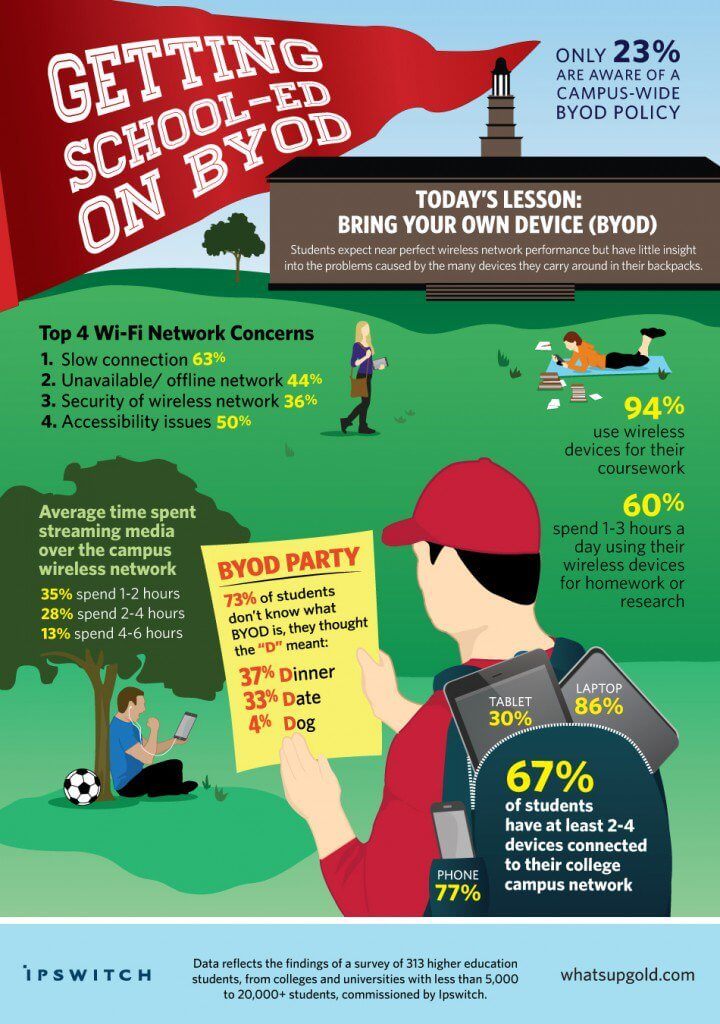Today we announced the results of our BYOD on Campus survey taken by 313 students at colleges and universities around the U.S. The survey highlights the disconnect that exists on college campuses between students and IT professionals who work hard to keep up with Wi-Fi demand. Students often blame the network for slowdowns while doing their homework. In fact, the source of their frustration can be their fellow classmates who are watching shows on Netflix or listening to their favorite music on Spotify. Survey highlights included:
BYOD is BMOC
- More than two-thirds (67 percent) of students have between 2 – 4 devices connected to their campus networks at any given time.
- Laptops (86 percent) were the most popular wireless device on campus, followed by mobile phones (77 percent) and tablets (30 percent).
Most students don’t get the “D” in BYOD
- Nearly three-fourths of all students polled (73 percent) did not know what the “D” stood for in BYOD.
- More than one-third thought the “D” in BYOD stood for “dinner” while one-third thought it meant “date”.
- One out of five students (27 percent) correctly identified the term.
Concerns about Wi-Fi and awareness of BYOD policy
- The top concern registered by students regarding their campus Wi-Fi networks was slow connection time (63 percent), followed by accessibility issues (50 percent) and security (36 percent).
- Only approximately one in five students (23 percent) surveyed were aware of a campus-wide BYOD policy.
Homework vs. home entertainment
- The vast majority of students polled use their wireless devices for coursework (94 percent), with more than half (60 percent) spending 1 – 3 hours day doing so.
- Only one-third of all students polled (33 percent) spend 1 – 3 hours a day doing homework via their wireless devices. Half (51 percent) spend the same amount of time chatting, texting or entertaining themselves.
- More than three-fifths (63 percent) of students polled spend 1 – 4 hours a day streaming media using services like Spotify, Netflix and YouTube.
- More than one-third (35 percent) of students indicated that they spend an average of 1 – 2 hours a day streaming media over their campus wireless networks. While 28 percent of them admitted to spending 2 – 4 hours a day doing so.
A high volume of online activity can lead to spikes in network traffic especially during popular events like the recent March Madness basketball tournament. IT professionals can mitigate the resulting problems with network monitoring technology that identifies not only the exact source, but also the people who are hogging wireless bandwidth.
